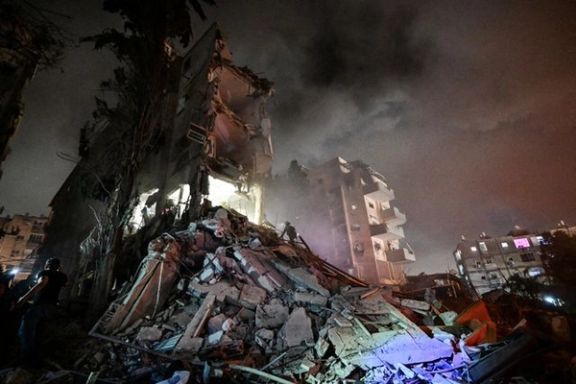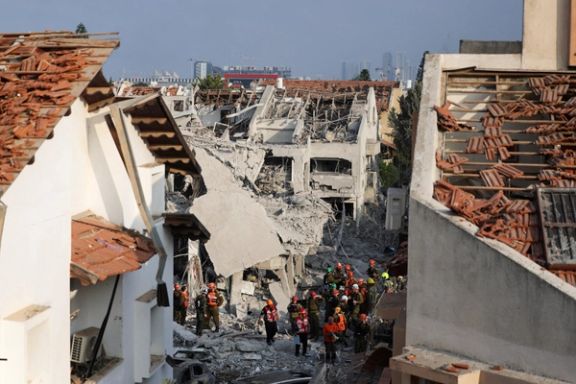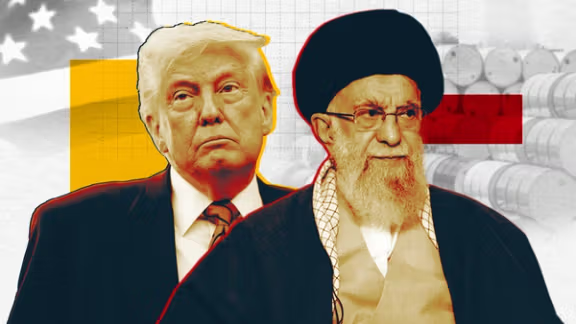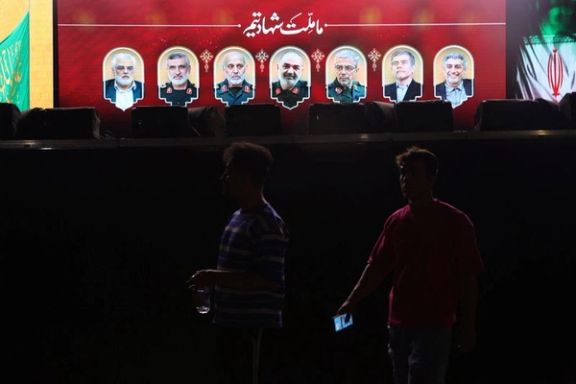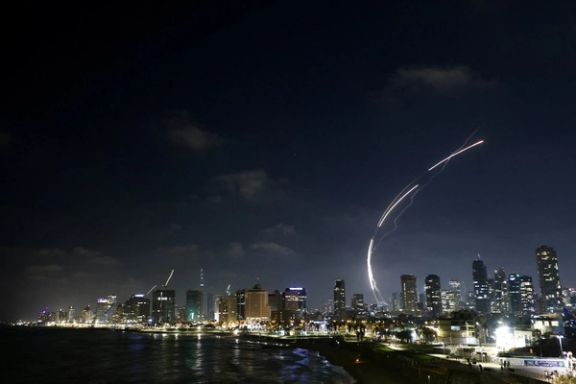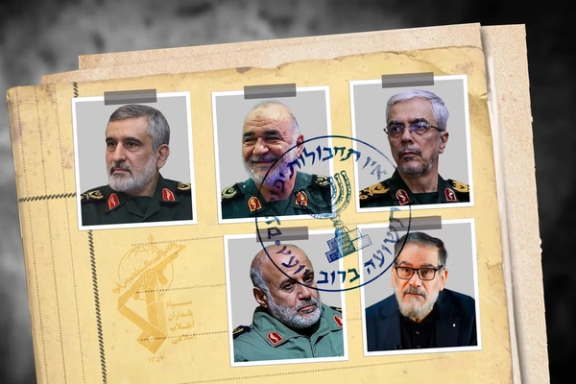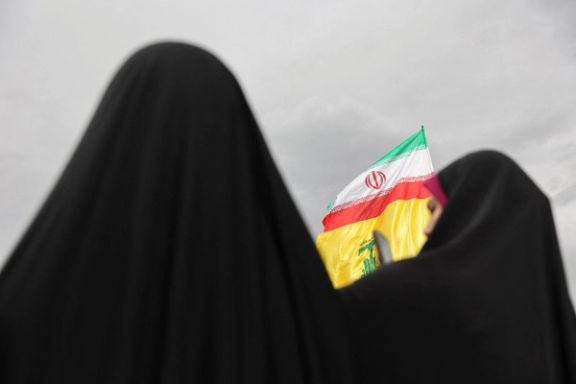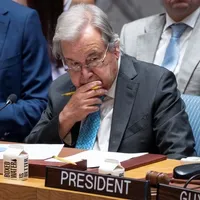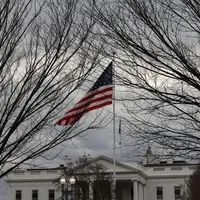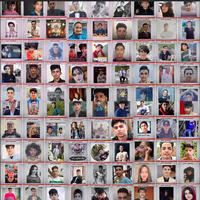A first wave of Iranian attacks comprised around 200 missiles, a source close to the Israeli government told Iran International, adding that fewer than 10 landed. Two more waves followed, residents and Israeli media reported.
Fourteen people were injured in a strike on a Tel Aviv building near the defense ministry, paramedics and Israeli media reported.
Several others were injured in other parts of Tel Aviv including a woman who succumbed to her injuries.
A source close to the Israeli government told Iran International that the "massive" hit to the building and the killing of and injuries to civilians meant the Jewish State would now consider targeting Iran's oil and gas infrastructure in retaliation, a potentially major escalation.
Israel's military urged residents to take shelter and said missile defense interceptions were ongoing.
Waves of Israeli airstrikes had hit nuclear facilities, military bases and the private homes of senior leaders all over Iran in an unprecedented attack by Israel against its Mideast arch-nemesis.
The strikes killed Hossein Salami, the head of Iran's Islamic Revolutionary Guard Corps, armed forces chief of staff Mohammed Bagheri, air force commander Amir Ali Hajizadeh, and several top nuclear scientists.
79 people were killed and hundreds wounded in Tehran alone, according to local health authorities, as a nationwide casualty count was yet to emerge.
US President Donald Trump on Friday lauded Israel's broad surprise attack against Iran which assassinated Tehran's top commanders, urging the Islamic Republic to sign a nuclear deal or face more punishment.
“They missed the opportunity to make a deal. Now, they may have another opportunity. We’ll see," US President Trump told NBC news in an interview on Friday.
Trump added added that Iranian officials were reaching out to the United States. "They're calling me to speak."
Supreme Leader Ali Khamenei survived and vowed to punish Israel for the attack.
Israeli forces say they intercepted incoming Iranian drones over neighboring Syria and Jordan on Friday and the Israeli military's head of operations Major General Oded Basiuk on Friday urged readiness because "the enemy’s response will come".
New Revolutionary Guards commander Mohammad Pakpour said Iran would respond to Israel's attacks and Tehran would open "the gates of hell", while Iran summoned the Swiss ambassador who represents US interests in Tehran and warned Washington against blocking Iranian counterattack.
An Israeli official told Iran International that Israel carried out a complex and multi-phase operation that disabled the launch of hundreds of Iranian ground-to-ground missiles aimed at Israeli territory.
"Painful fate"
Khamenei vowed retaliation, saying in statement, ""By God’s will, the powerful arm of the Islamic Republic’s armed forces will not let it go unpunished."
"With this crime, the Zionist regime has prepared a bitter and painful fate for itself—and it will undoubtedly face it."
A senior Israeli official told Iran International that leaders' homes and not civilians were targeted in the strikes in Tehran.
Iran's Natanz and Fordow nuclear sites were hit but only sustained superficial damage, a spokesperson for Iran’s Atomic Energy Organization said.
"Unilateral action"
Further Iranian retaliation could swiftly follow after it launched two direct missile attacks on Israel last year, and Washington began drawing down personnel in the region on Wednesday as tensions flared.
Iran's Persian Gulf neighbors Saudi Arabia, the United Arab Emirates and Qatar condemned the attack. Arab capitals, while often wary of Tehran, are keen to avoid a regional conflict or Iranian attacks on US bases in their countries.
"Tonight, Israel took unilateral action against Iran," Secretary of State Marco Rubio said in a statement issued by the White House on Thursday. "We are not involved in strikes against Iran and our top priority is protecting American forces in the region,"
"Let me be clear: Iran should not target US interests or personnel."
Israeli Prime Minister Benjamin Netanyahu gave a video address in which he said the operation was an open-ended campaign to remove what he called Iran's threat.
"Moments ago, Israel launched Operation Rising Lion, a targeted military operation to roll back the Iranian threat to Israel's very survival," Israeli Prime Minister Benjamin Netanyahu said in a video address on Friday local time.
"This operation will continue for as many days as it takes to remove this threat for decades, the tyrants of Tehran have brazenly openly called for Israel's destruction. They backed up their genocidal rhetoric with a program to develop nuclear weapons."
Confrontation stepped up
Tehran launched hundreds of missiles at Israel in October last year following Israeli military successes against its armed allies in the region and the assassination of a top Palestinian official on Iranian soil.
Israel retaliated with nationwide air strikes which hit Iranian air defenses but the confrontation quickly ended.
Iran and Israel are bitter foes whose decades of shadow conflict burst into the open last year after the October 7, 2023 attack on Israel by Iran-backed Hamas militants plunged the region into renewed conflict.
